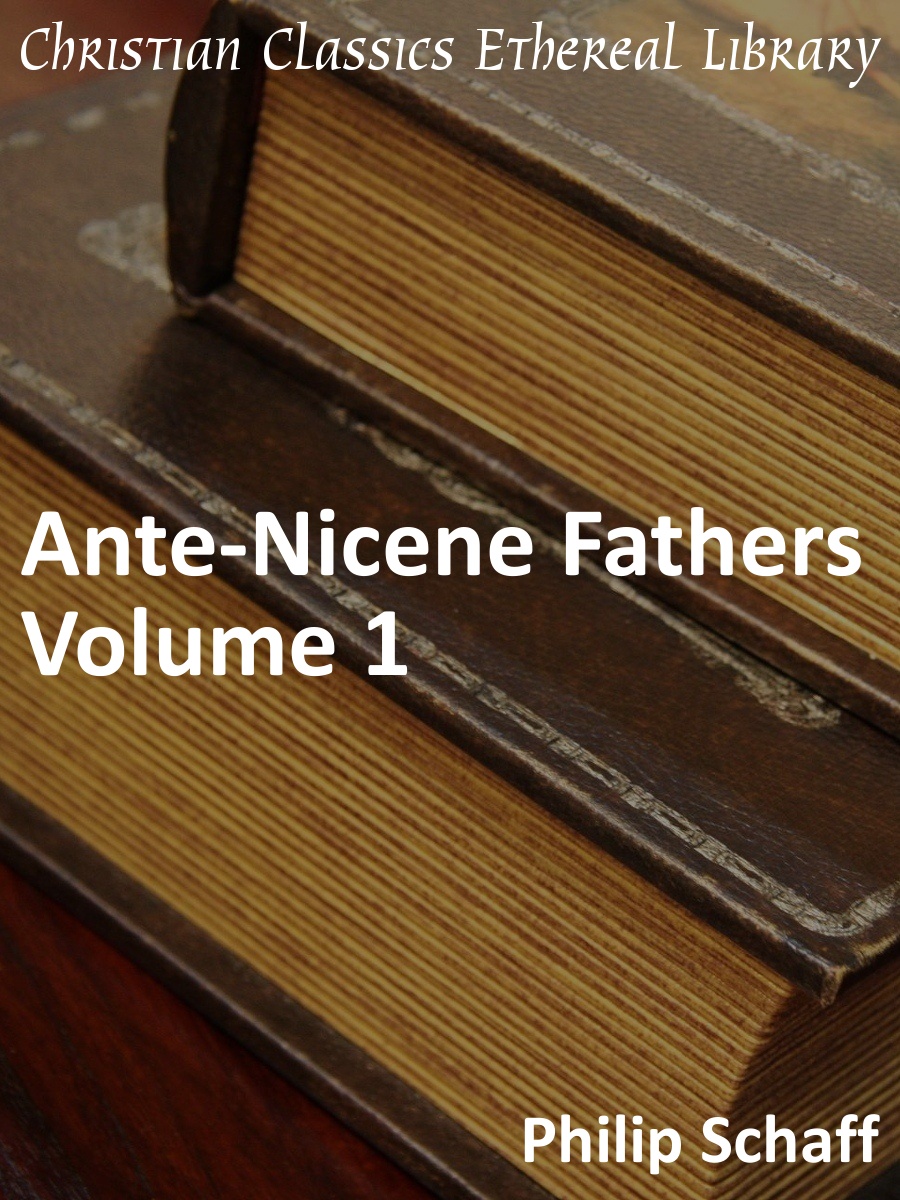Show only:
Classics only
Sort by:
CCEL Search results
History of the Christian Church, Volume V: The Middle Ages. A.D. 1049-1294 by Schaff, Philip (1819-1893)
. Literature: I. The works of William of Malmesbury, William of Newburgh, Henry of Huntingdon, Roger of Wendover, M. Paris, Richard of Hoveden, John of Salisbury, Walter Map, Giraldus Cambrensis, Ordericus Vitalis, Peter of Blois, Grosseteste, etc.
History of the Christian Church, Volume VIII: Modern Christianity. The Swiss Reformation by Schaff, Philip (1819-1893)
. The Reformation of Zurich was substantially completed in 1525. It was brought about by the co-operation of the secular and spiritual powers. Zwingli aimed at a reformation of the whole religious, political, and social life of the people, on the basis and by the power of the Scriptures.
NPNF2-01. Eusebius Pamphilius: Church History, Life of Constantine, Oration in Praise of Constantine by Schaff, Philip (1819-1893)
1. The Greek philosophers of his age are witnesses to his proficiency in these subjects. We find frequent mention of him in their writings. Sometimes they dedicated their own works to him; again, they submitted their labors to him as a teacher for his judgment.
NPNF1-13. Saint Chrysostom: Homilies on Galatians, Ephesians, Philippians, Colossians, Thessalonians, Timothy, Titus, and Philemon by Schaff, Philip (1819-1893)
Homily VII. Colossians ii. 16–19 “Let no man therefore judge you in meat, or in drink, or in respect of a feast day, or a new moon, or a sabbath day: which are a shadow of the things to come; but the body is Christ’s.
Catholic Encyclopedia, Volume 4: Clandestinity-Diocesan Chancery by Herbermann, Charles George (1840-1916)
"To write a full history of exegesis", says Farrar, "would require the space of many volumes." Nor is this surprising when it is borne in mind that the number of commentaries on such a recent writer as Dante reached the grand total of thirteen hundred at the beginning of the twentieth century.
Person of Christ: The Miracle of History. With a Reply to Strauss and Renan, and a Collection of Testimonies of Unbelievers. by Schaff, Philip (1819-1893)
THE next feature we would notice is the completeness or pleromatic fullness of the moral and religious character of Christ. While all other men represent, at best, but broken fragments of the idea of goodness and holiness, he exhausts the list of virtues and graces which may be named.
ANF01. The Apostolic Fathers with Justin Martyr and Irenaeus by Schaff, Philip (1819-1893)
ANF03. Latin Christianity: Its Founder, Tertullian by Schaff, Philip (1819-1893)
But “let your works shine,” saith He; Matt. v. 16. but now all our shops and gates shine!…
NPNF1-02. St. Augustine's City of God and Christian Doctrine by Schaff, Philip (1819-1893)
, Thought that Their Worship Should Be Confined to One God, Though He Was Unable to Discover the True God. What says Varro himself, whom we grieve to have found, although not by his own judgment, placing the scenic plays among things divine? When in many passages he is exhorting, like a religious man, to the worship of the gods,…
NPNF2-07. Cyril of Jerusalem, Gregory Nazianzen by Schaff, Philip (1819-1893)
Lecture VI. Concerning the Unity of God Περὶ Θεοῦ Μοναρχίας. The word μοναρχία, as used by Plato (Polit. 291 C), Aristotle (Polit. III.
History of the Christian Church, Volume I: Apostolic Christianity. A.D. 1-100 by Schaff, Philip (1819-1893)
. There is no necessary conflict between faith and criticism any more than between revelation and reason or between faith and philosophy. God is the author of both, and he cannot contradict himself.
